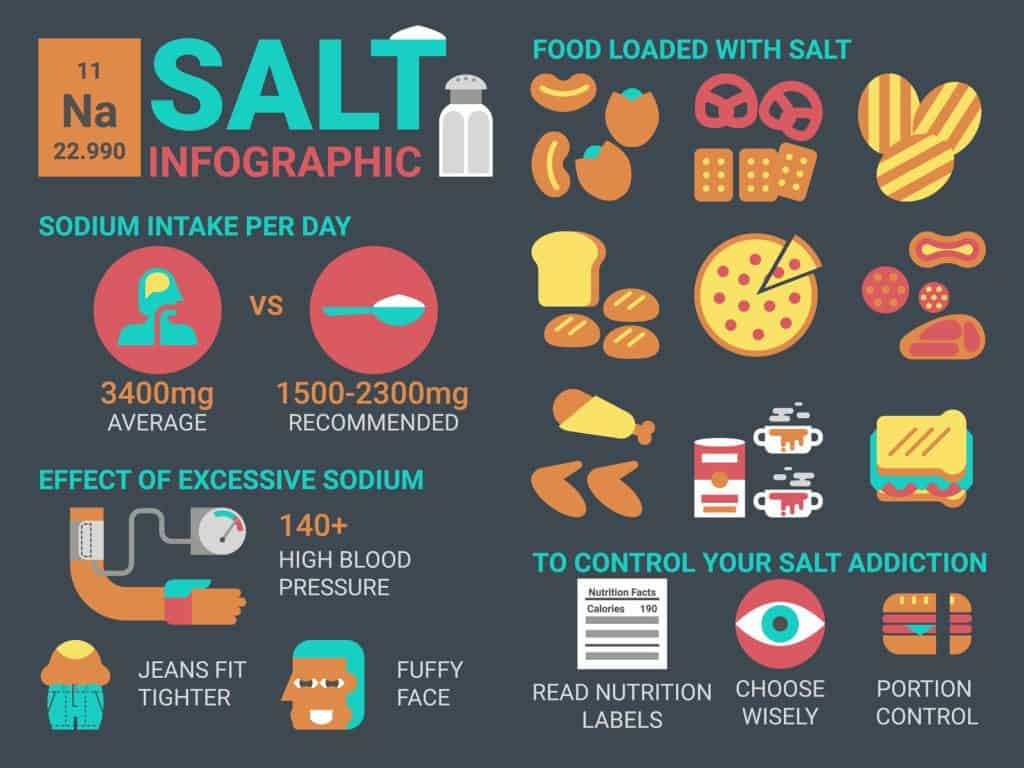It is a cruel and unforgiving world out there. Dog eat dog, survive the fittest, and go the spoils to the victor. Sometimes we feel safe behind fortified walls; we shelter in a safe harbor away from the fierce and uncaring sea. Sometimes we do this in our relationships out of fear, doubt, anger, or shame. We fear being hurt, again and again. We doubt our self-worth or that anyone could ever love us. As a result, we are angry that we are not where we thought we would be in life or who we thought we would be with. Sometimes, we are even ashamed of our failures and missteps along the way.
These emotions and feelings build thick defensive barriers between us and everyone else. These walls may keep us safe, but then again, so does a cage. We can only live a genuinely fulfilling life through accepting some risks and acting decisively when the time comes to do so. A ship is safe at anchor in a protected harbor, but that is not what ships should do.
Fifteen Habits to Build a More Authentic Relationship
Here are fifteen ways to break down the walls in your relationships holding you a prisoner.
1. Overcome Fear with Courage
We fear being hurt or missing a golden opportunity. We fear failure. Fear is our greatest enemy and always has been. Fear will prevent you from acting decisively when you need to. Furthermore, fear will cloud your judgment and push you to make false assumptions about people. Courageous people do not lack fear. They are scared out of their minds like everyone else. The key is not letting fear guide your actions. Push the fear to the back of your mind. Act. Act despite your fear.
You would be surprised at what you can accomplish even when afraid. That beautiful woman/man that you want to approach and talk to but can’t seem to muster the courage? Well, get over there and talk to them. What have you got to lose? Rejection? Well, you aren’t with them now, so what does it matter? And if you do manage to talk to them, you could win their heart. You can’t win anything without courage—the courage to try.
2. Banish Doubt with True Grit
Everyone has doubts–our ability, our partner, our attractiveness, and our worth. If we have doubts and know ourselves the best, why should anyone else believe in us? Be honest about your abilities and weaknesses, and then use your courage to try something. Keep trying until you succeed. The act of perseverance when all the odds are against you is a mark of true grit. True grit is the ability to keep going no matter what. I am sure you had heard it from your father when he said, “Suck it up and keep going.” That is what it means to have true grit. You take the punches and keep moving forward. You keep moving forward because that is how winning is done. Sometimes all your partner wants you to do is try, not to succeed, but to make an effort.
3. Release Shame and Embrace Acceptance
There are things in everyone’s past that cause shame. Sometimes, we are ashamed of who we are inside. Or perhaps we feel shame about our jobs or education. Sometimes we are ashamed of our circumstances or mistakes. The critical thing is that shame holds you down in a hard pit to escape. The only way to escape is to accept yourself and your circumstances. Accept your partner and all of their baggage as well. Once you accept all of that, then you can start moving forward. Do not hold mistakes or events in your past against yourself or your partner. Today is a new day. Yesterday is gone and done. There is nothing you can do to change the past, but you can start changing your future.
4. Refuse Judgment of Others or Yourself
Once you have accepted your past and your partner’s past, you can refuse judgment of yourself and refuse to judge them. Being overly critical of past mistakes is counterproductive and damaging to an excellent long-term relationship. If you find yourself keeping score or holding onto grudges, you are part of the problem. People screw up, even you. Sitting in judgment of them is not your place and does nothing to strengthen the relationship. That is not to say you should not have standards or embrace unacceptable behavior, but if someone is honestly trying to start fresh and better themselves, including yourself, then reminding them of their failures does not move the relationship forward. It moves it backward.
5. Let Go of Resentment and Embrace Love
We resent people or situations because we are angry with them. Being angry always wears you down and adversely affects all of your relationships. No one wants to be with someone angry and resentful all the time. Let go of it. Let go of it because you refuse to judge others for their past, and you have released your shame and accepted yourself the way you are. Embrace your love for yourself and others. Use that love to build yourself up, build up your partner and build up the foundation of the relationship. Eventually, you will build that foundation so much that you have buried the walls between you.
6. Good communication
Good communication breaks down walls in any relationship. Of course, good communication is more than talking to someone. It’s asking them good questions, maintaining eye contact, and staying focused on what’s being said. Good communicators avoid bad habits that build walls in a relationship.
- Not focused: Looking at your phone or walking out of a room while your partner is talking signals you’re not interested in what they have to say.
- Giving unwanted advice: Don’t be the answer person to your partner. Hold your thoughts and opinions while they’re sharing. Only advise if they express a desire to hear what you think.
- Judging: Don’t assume you know your partner’s motives. Don’t criticize them. This is sure to put up some walls in your relationship. Please give them the benefit of the doubt and assume the best about them. Treat them how you like to be treated.
7. Show respect
When you show your partner respect, the walls in our relationship will come down. Showing respect means you acknowledge they have feelings and opinions that may differ from you, and that’s okay. You respect them for who they are rather than wanting them to be like you. If you’re going to break down the walls, practice these respectful habits.
- Show compassion in word and deed.
- Admit when you’re wrong
- No hurtful name-calling
- Be patient
- Take responsibility
- Be quick to forgive without holding it over them
- No eye-rolls, heavy frustrated sighs, or other actions to display your irritation

8. Be a good listener
A good listener is an active listener. When your partner is talking to you, look into their eyes, lean forward, and give them your full attention. Being an active listener improves your communication, but according to researchers, it can enhance the happiness in your relationship. If you want to break down the walls of your relationship, develop your listening skills.
9. Show emotional support
Showing your partner emotional support means you will be with them in the good and wrong times. You care about how they feel, and when they’re sad or frustrated, you look for ways to support them. Displaying emotional support means asking your partner good questions to draw them out about their feelings, such as:
- How did that make you feel when your brother said that to you?
- When your boss did that, how did you react?
- How does work worry you the most?
- How did it feel when you got passed over for the promotion?
- Can I support you more during this challenging time?
Even if you think you know how your partner feels about something, it never hurts to ask. It might surprise you what they’re feeling.
10. Be honest
Relationships have their ups and downs. You don’t always “feel in love” with your partner. Sometimes your partner makes you mad or sad. It doesn’t cancel your love or commitment. Being honest enough to say I’m struggling right now is good. Blame shifting and ranting at your partner is never a good idea. Words damage, and once something is out of your mouth. It’s impossible to take it back. Communicate honestly but kindly, and remember that difficulties come and go. This is the best way to break down walls in our relationship.
11. Forgive without strings
No one enjoys it when someone says they forgive you, but keep bringing up what you did. An ancient text says it well.
Love prospers when a fault is forgiven, but dwelling on it separates close friends. (Proverbs 17:9 NLT)
If you want to break down the walls in our relationship, be willing to forgive. Remember that you make mistakes so you can forgive your partner. Without forgiveness, the walls will never come down. Be sure to vocalize your forgiveness rather than pretending nothing happened. This is unauthentic. Take the time to talk about what happened and express your forgiveness. Be sure to apologize for any contributions you made to the incident.
12. Show gratitude
Expressing gratitude is a sure way to break down walls in your relationship. Showing gratitude for your partner builds positivity in your relationship. It makes your partner feel appreciated. You can show your partner gratitude through your words and your actions.
13. Be careful what you text
Lots of conversations with your partner happen via emails and texts. Be sure to consider what to say and how it may come across. It’s easy to misread someone’s attitudes behind a text or email. Even the most benign text can be received wrong if you’re not careful to fill in details.
14. Show patience
Your partner isn’t perfect, but so what, neither are you. Choose your battles in your relationship. Are you willing to yell at your partner because they throw their clothes on the floor? Is it worth it? Show them patience by your words and actions. Let go of your anger and bitterness. These are unproductive attitudes that put walls up. Talk about problems, but show kindness, care, and, most of all, patience.
15. Show affection
Healthy relationships are built on the appreciation. Hugs, a sweet caress, or a tender kiss before you leave for work tell your partner you love them. Things that you can do to break down walls in your relationship with affection include:
- Lots of hugs
- Kisses when you get home from work and when you leave
- Holding hands in public
- Smiling across the room at your partner
- Little gifts
- Checking in via text or phone call
- Saying, “I love you.”

Final Thoughts on Breaking Down Walls in Your Relationship
You must be intentional if you want to break down walls in our relationship. You can kick down these walls with good communication, good listening skills, and showing emotional support. Express your gratitude to your partner and show them affection every day. Having a healthy relationship is worth the effort. Getting the walls out of the way will allow your strong, healthy, and authentic connection to flourish.








 1. Give Your Kids Responsibilities At Home
1. Give Your Kids Responsibilities At Home 8. Appreciate Your Child’s Effort
8. Appreciate Your Child’s Effort Final Thoughts on How to Make Your Child Successful in Life
Final Thoughts on How to Make Your Child Successful in Life

